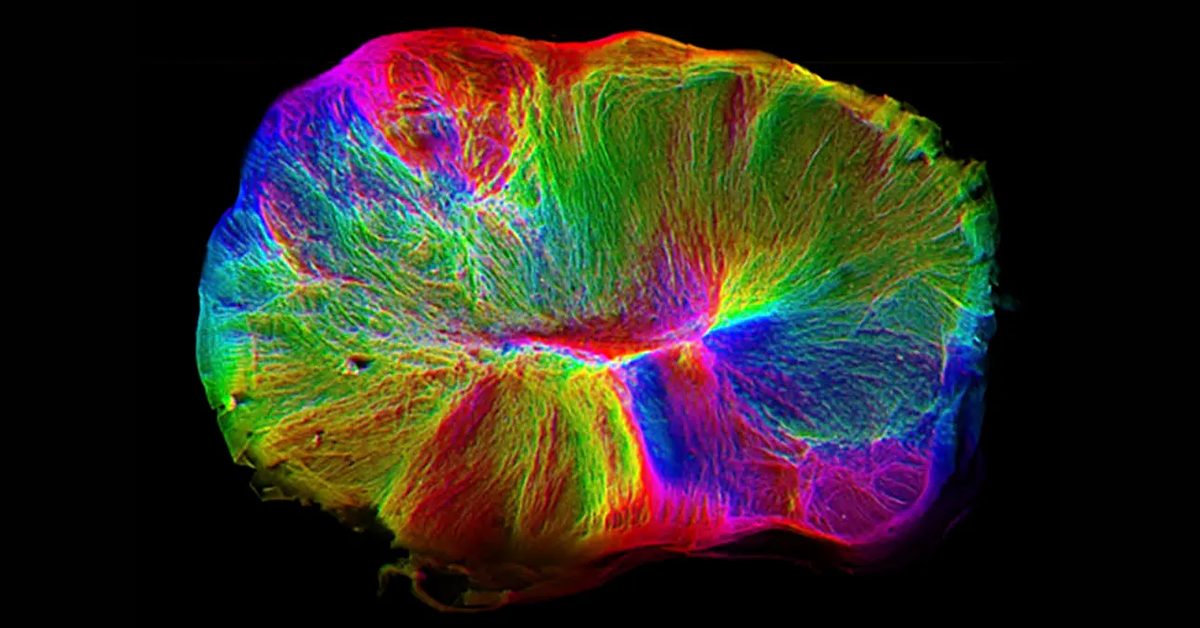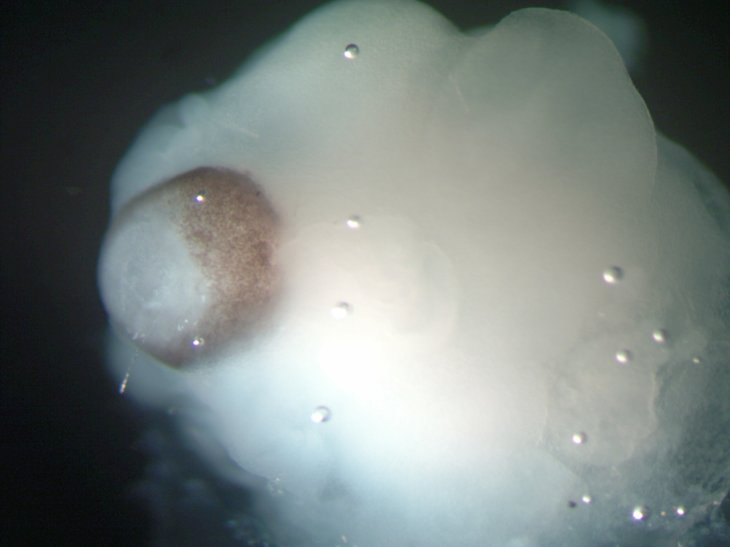Miniature Brain Grown In A Lab Uses “Tendrils” To Connect And Control Spinal Cords
Chander Sinha - Apr 04, 2019

Scientists working at Cambridge has just taken a step closer to growing a brain inside a laboratory, making studies about brains as well as nerve diseases a lot easier.
- Japan Hydrogen Breakthrough: Scientists Crack the Clean Energy Code with Mind-Blowing 1,000% Efficiency Jump
- 'Five-second rule' For Food Dropped On The Floor: Is It True?
- Scientists Want To Send 6.7 Million Samples, Including Sperm, To The Moon
Scientists from Cambridge say that they have succeeded in growing a kind of miniature brain. They grew it inside a petri dish which is used to take over the control of the biological materials surrounding it.
Different from the last brains which were also grown in the labs, this new one will actively produce “tendrils” to make a connection with a spinal cord of a mouse. The Guardian revealed that the brain can make use of the newly connected spine to control the muscle of a mouse that is attached to it.

The Guardian considered this brain as a “lentil-sized grey blob of human brain cells.” This shows a huge step forward due to its eerie capability to make a connection with a somewhat simple nervous system. The scientist who created the brain are hoping that they will be capable of using it — as well as other organoids similar to it — to research brain and also nerve diseases on a controlled and small scale.

During an interview, Madeline Lancaster - the leader of the study - shared with The Guardian that:

Estimation made by the researchers shows that the newly grown brain owns the sophistication similar to those of a human fetus developed somewhere between 3 and 4 months. However, The Guardian revealed that they don’t suppose that there is any cause related to ethical concern for now. Lancaster shared with The Guardian:

Featured Stories

Features - Jan 29, 2026
Permanently Deleting Your Instagram Account: A Complete Step-by-Step Tutorial

Features - Jul 01, 2025
What Are The Fastest Passenger Vehicles Ever Created?

Features - Jun 25, 2025
Japan Hydrogen Breakthrough: Scientists Crack the Clean Energy Code with...

ICT News - Jun 25, 2025
AI Intimidation Tactics: CEOs Turn Flawed Technology Into Employee Fear Machine

Review - Jun 25, 2025
Windows 11 Problems: Is Microsoft's "Best" OS Actually Getting Worse?

Features - Jun 22, 2025
Telegram Founder Pavel Durov Plans to Split $14 Billion Fortune Among 106 Children

ICT News - Jun 22, 2025
Neuralink Telepathy Chip Enables Quadriplegic Rob Greiner to Control Games with...

Features - Jun 21, 2025
This Over $100 Bottle Has Nothing But Fresh Air Inside

Features - Jun 18, 2025
Best Mobile VPN Apps for Gaming 2025: Complete Guide

Features - Jun 18, 2025
A Math Formula Tells Us How Long Everything Will Live
Read more

Mobile- Feb 17, 2026
Anticipating the Samsung Galaxy S26 and S26+: Key Rumors and Specs
The Samsung Galaxy S26 series is on the horizon, sparking excitement among tech enthusiasts.

ICT News- Feb 18, 2026
Google's Project Toscana: Elevating Pixel Face Unlock to Rival Apple's Face ID
As the smartphone landscape evolves, Google's push toward superior face unlock technology underscores its ambition to close the gap with Apple in user security and convenience.

ICT News- Feb 19, 2026
Escalating Costs for NVIDIA RTX 50 Series GPUs: RTX 5090 Tops $5,000, RTX 5060 Ti Closes in on RTX 5070 Pricing
As the RTX 50 series continues to push boundaries in gaming and AI, these price trends raise questions about accessibility for average gamers.

Mobile- Feb 16, 2026
Xiaomi Launches Affordable Tracker to Compete with Apple's AirTag
For users tired of ecosystem lock-in or high prices, the Xiaomi Tag represents a compelling, no-frills option that delivers core functionality at a fraction of the cost.
Comments
Sort by Newest | Popular